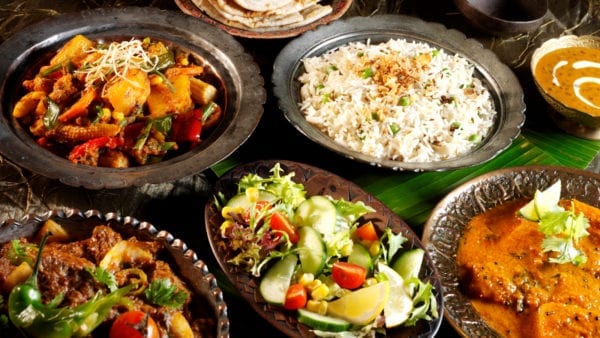Discover Tunisian Cuisine

May is International Mediterranean Diet Month, created in 2009 by Oldways which celebrates the delicious food and wide ranging health benefits associated with the foods originating from this part of the world. And Tunisia, whose cuisine’s distinctive spiciness can be attributed to the many civilizations which have left their mark on this Mediterranean country celebrates with its healthy and tasty specialties. It is the melting pot of the Berber, Phoenician, Arab, Jewish, Turkish as well as Roman and French civilizations who have impacted this small northern African country whose appetizing recipes have been passed from generation to generation, from mother to daughter by word of mouth. Today, gastronomic explorers can experience the cuisine through Layla’s Delicacies as well as via tours organized by cultural institutions such as the Metropolitan Museum of Art.
Influences from all four corners of the world
Tunisian cooking can easily be distinguished from neighboring North African countries by its spiciness.
Strongly influenced by its geographic location and the passage of diverse civilizations, each region of Tunisia has its own unique recipes reflecting the ingredients found there. On the coasts, fish, and vegetables reign supreme. In the center and south of Tunisia, grains and meats take center stage. From the Borzgen couscous of the Kef area to lamb from Beja. The common denominator in all is their colorful, fragrant, and varied spices. Tabel, the magic mixture of spices most frequently used includes ground coriander seeds, caraway seeds, garlic and chile powders. Cumin, mint, laurel cloves or turmeric are often added.
“Tunisian cuisine is a wonderful mixture of local natural ingredients, influenced also by the Italian and French,” said Cindy Hoddeson, Board member of the Wellness Tourism Association. “One of the principles of wellness tourism is the inclusion of healthy food. Tunisia is a land offering a diet rich in flavors good for the body and soul.”
Typical Tunisian Ingredients
The flagship ingredient and not to be missed is Harissa, a condiment made with a mix of chili peppers, garlic, and spices commonly sold as a paste and key to the creation of different sauces. Like Harissa, tomato paste is also an integral part of the Tunisian pantry. Other special condiments and flavorings are rose, orange blossom, jasmine, and geranium waters. Like many countries in the Mediterranean basin, the Tunisian cuisine is heavily based on olive oil, tomatoes, seafood, and some meat. Wonderful local fruits include lemon, oranges, figs, dates, olives, apricots, and pomegranates. Sweet treats are made with honey, almonds, and pine nuts. Grains like rice, couscous and pastas from Italian influence are mainstays.
Typical, Well-Known Dishes
Following are some typical dishes which locals and visitors enjoy:
Ojja (often called Shakshuka): (with or without a spicy Harissa-spiked Merguez sausage) – Tunisian Ojja is a typical light meal made with eggs and sausage with a spicy and garlicky, tomato and pepper sauce. Brik – tiny parcel of minced lamb, beef or vegetables and an egg wrapped in thin pastry and deep fried. Fricassé – tiny sandwich with tuna, harissa, olives, eggs, and olive oil. Label abi – rich garlicky soup made with chickpeas (other ingredients such as tuna, eggs, harissa, and cubes of bread can also be included) Couscous – the national dish prepared in many different ways and made from small durum semolina balls that are crushed and steamed. Seafood- whole fish are prepared and fire-grilled but can be fried or sautéed topped with lemon juice, sea salt and parsley.
Via this link is a traditional Tunisian Recipe for Ojja (Shakshuka) with Merguez – Traditional Tunisian Recipe.
Sweet treats also are found in the region (a reward for healthy eating!).
Rim Ben Amara, who own Layla’s Delicacies in Union, New Jersey is the only Tunisian pastry
shop in the US specializing in authentic Tunisian pastries said, “Tunisian pastries are traditionally made by hand at home and are made with the finest high-quality ingredients. They take an incredible amount of time and attention to detail. They are a way to show gratitude and to welcome guests at weddings and other happy celebrations. Treats have a rich history and come from different parts of Tunisia.
Rim Ben Amara shares two staples of the Tunisian pastries: Samsa that is originally from Tunis, the Capital.
Samsa – One of the most famous pastries in Tunis, especially during the month of Ramadan.
When going Downtown Tunis (Beb Lebnet), you will find a street full of shops specializing in just Samsa. Tunisians travel from all over the country to buy these pastries. These triangle-shaped little gems have a crispy outer layer made out of thin brik filo sheets and a moist filling made out of a mix of crunchy almonds and hazelnuts.
And Kaak Warka – Originally from Sfax, the second largest City, and located in the south.
Found at every wedding or a happy celebration in Tunis. These tiny donut-shaped treats are filled with almond paste and infused with rose water for a distinct flavor and a subtle sweet taste.
Mahmoud Labidi, Tourism Professor in Management at the University of Sousse said, “We are thrilled to open the door to our Tunisian kitchen as well as to discover some of our historic and UNESCO sites such as Carthage, our beaches, our desert and more.”
“Local cuisine is an amazing way to experience a country,” said Jim Friedlander, President, Arrangements Abroad. “We are thrilled to be operating a tour sponsored by the Metropolitan Museum of Art to Tunis this September (2021). Cuisine as well as art, architecture and culture, play an important part of the total experience.”
Tunisia wants to share the tasty culinary offerings found in Tunisia and wishes everyone a toast with a Tunisian Boukha and a tasty fig liqueur until we can travel again!”



